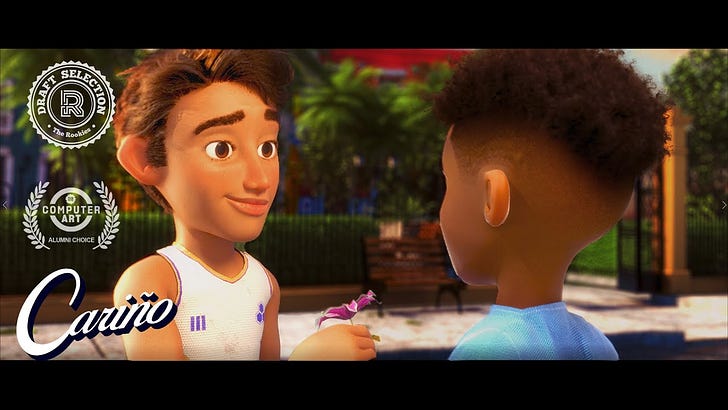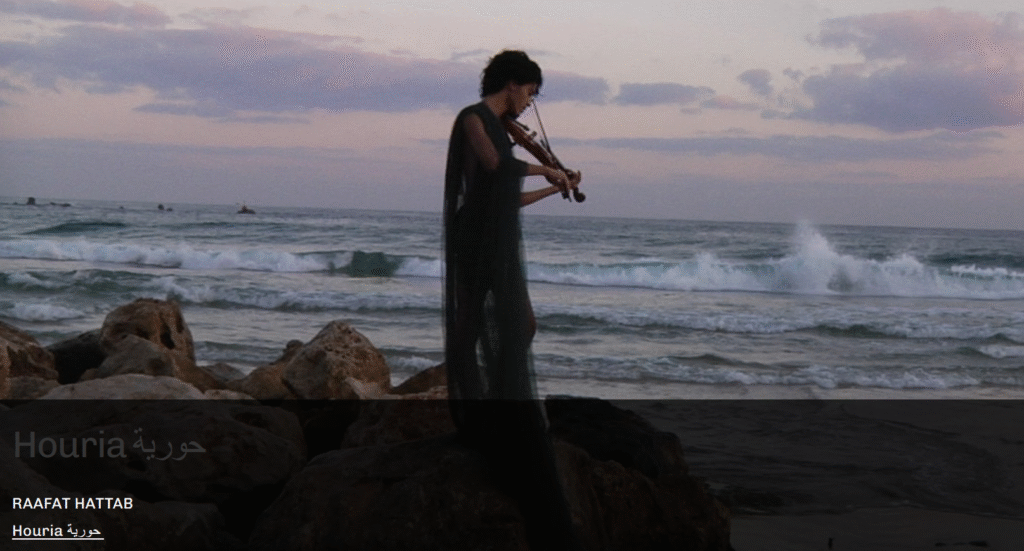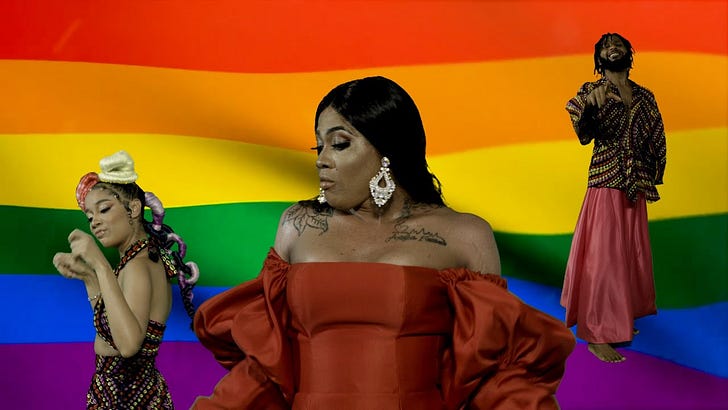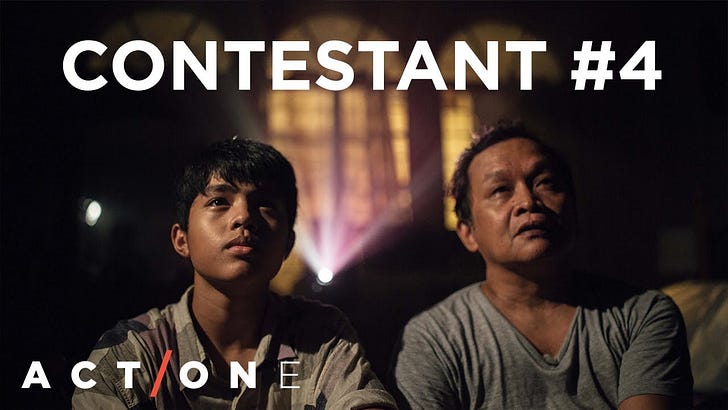Five short films are living in diaspora
There’s a term for people like me, one that I think has largely gone out of use, but that my family and I at least still use jokingly: “American-Born Confused Desi”, or ABCD. (You may be familiar with the 2002 young adult novel Born Confused by Tanuja Desai Hidier, or the term being referenced in TV segment Hasan Minhaj did once with desi kids.)
It’s the “confused” part that gets the most discussion, and I’m of two minds (ha) about it. On the one hand, growing up in diaspora inevitably leads to a sense of living between two worlds, spending much of your time in a place where you are seen as an outsider by the majority, while having no “home” to go back to without giving up another part of yourself. These tensions are mitigated by many other dynamics, including language loss, assimilation, and, of course, the complexity of being queer or trans.
On the other hand, many people in diaspora like myself, who grew up with other forms of privilege and relative privilege within our diasporic communities, can co-opt our status as people of color to claim oppression in cases where we’re actually using it to oppress others in our diaspora. There’s the common example of Hindu kids in the west who justify their casteism and Islamophobia by calling anyone who protests “Hinduphobic”, or claiming that they grew up “middle-class”, while their families were dominant caste and highly-educated before they left their home country. That does not mean we do not face racism as people of color in a white country, but that we must be aware of the spaces where we do hold privilege and not abuse them, particularly in the name of anti-Blackness and anti-indigeneity (which in South Asia is very tied to caste).
Because this is my community, I know enough to spot those kinds of narratives in films about South Asian folks, which is perhaps why none of this week’s films are about my own diasporic community. I’m aware that I don’t have the same context for whether any of this week’s films are perpetuating similar narratives in other communities, though I sincerely hope they aren’t.
There were two other things I wanted to be cognizant of with this week’s them: one, that not all the films were about immigration to a majority-white country; and two, that they are not simplified narratives that assume immigration from Black and brown countries to western countries are bringing queer and trans people to an unequivocally-liberatory environment that we did not have in our countries of origin. On the first point, only one film I found met that requirement, though I am on constant outlook for more. On the second, I am hopeful that the nuance I found in the films I have chosen is just as evident to all of you when you watch them.
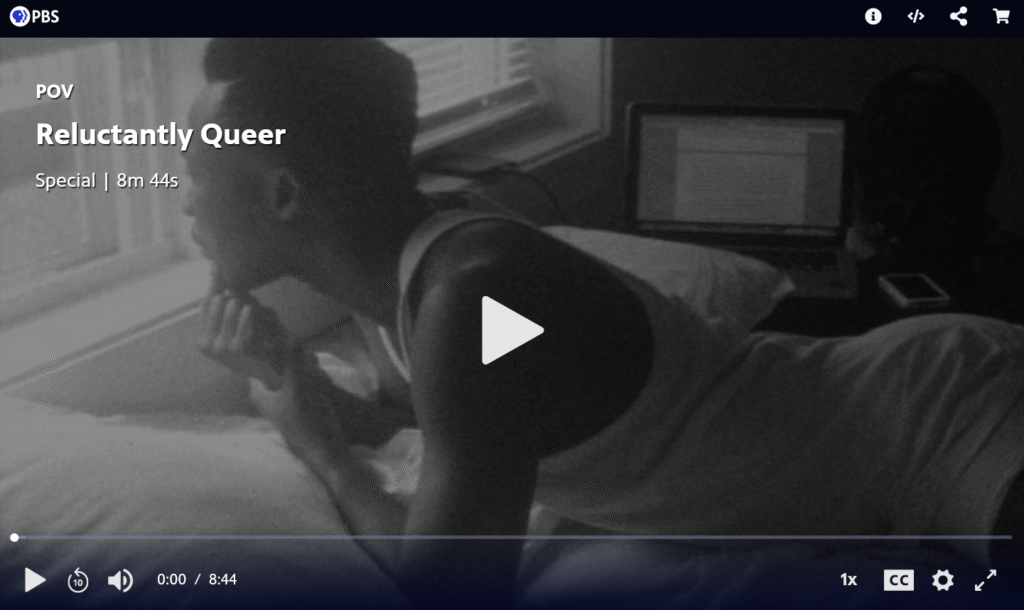
“Did I ever tell you?”
Reluctantly Queer, written and performed by Kwame Edwin Otu and directed by Akosua Adoma Owusu, is a short epistolary documentary about a young man from Ghana who has immigrated to the United States. In a poetic letter to his mother back home, spoken over footage of his life in the U.S. and in bed with his lover, he speaks powerfully about both the anti-Black racism he experiences in America, while, simultaneously, struggling with how in Ghana he had to suppress his sexuality to survive.
“With Reluctantly Queer I am again retelling a story rooted in struggles with identity, though in this film I found inspiration in a story not my own but in one parallel to mine in many ways,” said director Akosua Adoma Owusu in a producer’s statement. “The film chronicles [Kwame Edwin Otu’s] struggles with his identity as a queer Ghanaian man and the tensions that it brings with his mother. His conflicts with identity were internal while mine were external; so our narratives parallel. I am also interested in taking advantage of the cultural privilege I have of communicating, on a public platform, issues that are considered taboo in many parts of the world. It’s the privilege of telling these stories as an American and a Ghanaian; a privilege my Ghanaian parents gave me by immigrating to this country. I use my voice or my art to convey stories about the human experience and commonalities within our differences.”
Reluctantly Queer
“The god now travels through eternity answering prayers of forbidden love.”
兔兒神 | Kiss of the Rabbit God, written and directed by Andrew Thomas Huang, is an enthralling short film about Matt (Teddy Lee), a Chinese-American man who works at his family’s restaurant, who is visited nightly by a man he eventually realizes is the 18th century Qing dynasty god Tu’er Shen (Jeff Chen), the Rabbit God. Tu’er Shen was originally a Fujianese soldier named Hu Tianbao who fell in love with an imperial inspector; when caught spying on him naked, Tu’er Shen was executed, then made a god in the underworld. Through his mysterious appearances at Matt’s restaurant, Matt is confronted by his own desire and sexuality.
“While searching for an underlying theme in my work, I keep running into the idea of hybridity,” said creator Andrew Thomas Huang to FACT Magazine. “Whether it’s cultural or sexual hybridity of my characters, or visual hybridity between live action and visual effects, I am interested in the creation of characters that straddle multiple worlds.”
Additionally, Huang drew from his own life in Taishanese diaspora. “Matt’s daily grind at work was inspired by my own family’s forty-year history in the restaurant business. Ours was a Cantonese restaurant in LA, and I wanted to pay homage specifically to restaurants founded by Taishanese immigrants, who came to the States pre-1970,” he said in a “making of” video about the film. Huang also notes the ongoing influence of the legend of Tu’er Shen. “The Rabbit God still lives on as Tu’er Shen is still worshipped at Wei Ming shrine in Taiwan, a temple dedicated to him in New Taipei City, where religious ceremonies are performed for gay couples. This temple holds significance in Taiwan as the first country in Asia to legalize gay marriage.”
兔兒神 | Kiss of the Rabbit God
“As a Palestinian growing up in Jerusalem, the best way to get by is to have a coping mechanism. I was that kid at school who was into strange songs and odd singers.”
First of all, if you don’t believe that Palestine is under violent apartheid and must be freed, and that Palestinians in the diaspora should have the right to return to their homeland and the right to self-determination and governance, then you should fuck off right now and unsubscribe from my newsletter.
Okay, now onto the film.
راكب راكب إنترنت | Wifi Rider, directed by Roxy Rezvany, introduces us to Shukri Lawrence, a young, queer Palestinian-Armenian fashion designer and photographer. Shukri, who was born in East Jerusalem and now lives in Jordan, came to fame through his Instagram account @wifirider, which he created as a teenager to share his style, fashion, and takes on pop culture. The film, shot on 16mm, also integrates footage from Shukri’s early life as well, with Shukri’s voiceover to tell us about his story and the clothing label named Trashy Clothing that he founded with his co-designer Omar Braika, who is also Palestinian.
The displacement and threat of state violence that Shukri faces is felt throughout the docu-short; he begins by telling us how as a child he dreamed of moving to France, where he thought he would find freedom from his experience in Israel. However, over the course of his adolescence, Shukri began to understand that while he, like all Palestinians currently, has no real home, he prefers his life to still be grounded in the Arab world where he still has community in the Palestinian diaspora.
“Shooting on film for a story like this was about showing audiences the colour, texture and sensitivity through which Shukri sees the world,” said director Roxy Rezvany to Short of the Week. “I feel that there’s a tendency with films about ‘youth and the internet’ to wed those stories to a digital aesthetic, but I think that would have belied the real intensity of Shukri’s emotions and the fact this is much more than a story about social media. It was also about contrasting our imagery with the types of portrayals that Shukri had seen of Arab men, women and cities that fuel the negative stereotypes, and the photojournalistic coverage of ‘the Middle East’ that we see emerge through coverage of war and occupation that only shows Palestinians traumatised.”
راكب راكب إنترنت | Wifi Rider
“My presence as a queer tattoo artist allows me to take up space in this industry and allow more folks to look like me to enter into this industry.”
Ink the Diaspora: Stick and Poke Tattoo Artist Breaks Gender Barriers, produced by Caroline Aghajanian and Kuwilileni Hauwanga, shares the work of tattoo artist Tann Parker, the founder of Ink the Diaspora, a community effort to share tattoos by queer dark-skinned Black folks. Tann runs their own tattoo shop where we watch Tann work with a client, Adéyanjú Aiyégbùsì getting a Hausa Kan Kiski, the head of the rainbow lizard, in a Yoruba design, while Tann tells us how they work to break down stereotypes in the tattoo industry and make tattooing more accessible.
Ink the Diaspora: Stick and Poke Tattoo Artist Breaks Gender Barriers
“Why do Chinese restaurants always have fish tanks?”
In 幸運魚 | Lucky Fish, written and directed by Emily May Jampel, we meet a biracial Chinese-American teenager named Maggie (Lukita Maxwell, who you may recognize from a previous queer short film I wrote about, the beginning & the middle) who feels bored and out of place at a family dinner at a Chinese restaurant. In the bathroom, she meets Celine (Anna Mikami), a kindred spirit, and they connect about the difficulty of reconciling their own dreams and wishes with family expectations.
“This story was inspired by my experience growing up as a mixed-race Asian American and the sense of disconnect I felt with the Chinese side of my family and my memories of these long, never-ending dinners that I’m sure many Chinese-Americans have probably experienced, where the adults would gossip and play mahjong, while all the kids would play gameboy and hangout together by the fish tanks,” said creator Emily May Jampel in her director’s statement. “Rather than focusing on the darker sides of this experience, I really wanted to revisit this period of my life with a sense of humor and optimism by exploring these feelings of isolation while offering a small, if temporary, sense of relief from it.”
幸運魚 | Lucky Fish

